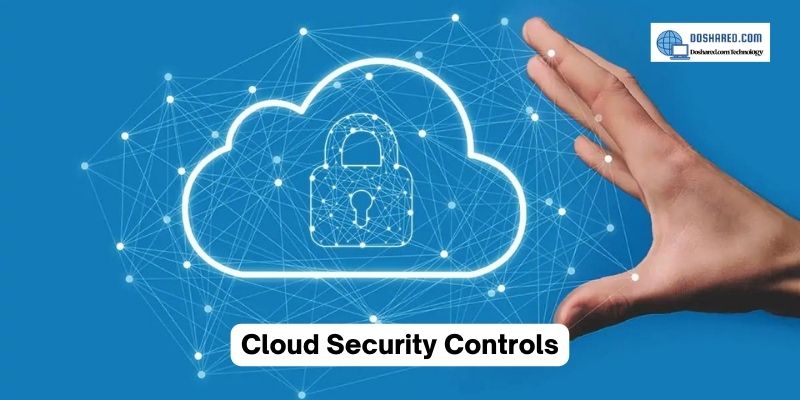Cloud Security Controls: 3 Reliable Pieces of Knowledge
As more businesses move their operations to the cloud, the importance of Cloud Security Controls cannot be overstated. Cloud Security Controls are essential measures that help protect sensitive data and ensure the integrity of cloud-based systems. In this article, Doshared.com will discuss three reliable pieces of knowledge that businesses can use to strengthen their cloud security control and protect their valuable assets.
Contents
- 1 Cloud Security Controls: 3 Reliable Pieces of Knowledge
- 2 What Are Cloud Security Controls?
- 3 4 Different Types of Cloud Security Controls
- 4 Deterrent controls
- 5 Preventive controls
- 6 Detective controls
- 7 Corrective controls
- 8 Considerations for Security in Cloud Deployment Models
- 9 Deployments of public clouds
- 10 Deployments of private clouds
- 11 Hybrid cloud implementations
- 12 Conclusion
Cloud Security Controls: 3 Reliable Pieces of Knowledge
What Are Cloud Security Controls?

The variety of precautions and industry-recognized best practices that businesses use to secure their cloud systems and guard against threats are known as cloud security control.
They aid organizations in assessing, implementing, and dealing with information security. Any cloud security strategy must include these security measures as a key component.
Cloud security operations should be deployed as soon as your company migrates to the cloud, or even during this process, in order for them to reach their full potential. Making your cloud settings less vulnerable is the ultimate goal of cloud computing security.
To achieve this, a number of processes and best practices must be followed to make sure everything goes according to plan. Your cloud security control may consist of these regulations, and there are various kinds to be aware of.
4 Different Types of Cloud Security Controls
Although your business can use a variety of security controls, most of them fall into one of the following four categories:
-
Deterrent controls

This information security precaution is designed to deter bad actors from accessing your cloud system. Any attackers are warned by deterrent controls that stealing data or participating in questionable activities will have negative repercussions.
They function as a kind of warning mechanism intended to direct individuals away from crucial systems. In order to demonstrate their vigilance against cybercrime and commitment to taking internal theft or leaks seriously, cloud service providers, for instance, run criminal background checks on all of their workers.
-
Preventive controls
Preventive controls do exactly what they say on the tin: they increase the cloud’s resistance to attacks by making them more difficult to launch. This covers patching security holes, creating code to shut off idle ports, maintaining a strong user authentication system, and taking any additional steps to fortify data or access protections. As an illustration, requiring multifactor authentication to access data or log into a system
-
Detective controls

Detective controls, which are mechanisms put in place to find and address security threats and incidents, are another sort of cloud security control. They are made to spot any potential threats to your cloud environment and react properly, so your business can quickly fix any issues. Software for intrusion detection or security monitoring tools are examples of this form of security control.
-
Corrective controls
Corrective measures go into effect when an assault really occurs. With solutions that can help reboot systems, back up data, and disconnect servers from the network, they can reduce the risk of broad compromise. You have a better chance of lessening the impact of a malicious assault on your company if you have corrective controls in place.
The finest cloud security incorporates each of these control types to offer your business the greatest level of security. There are various deployment models available for launch, depending on the controls you want to use.
Considerations for Security in Cloud Deployment Models
What ultimately determines your deployment approach is how much accountability you want to have for the security of your cloud infrastructure and data. Businesses typically choose one of three deployment models:
-
Deployments of public clouds
Cloud Security Controls
Public cloud infrastructures are created for businesses that operate their cloud apps on a vendor’s actual IT network and equipment. However, the company continues to be the owner of its operating system, apps, and data, making it accountable for public cloud security. You must understand your responsibility for maintaining the security of your data if you go with a public cloud infrastructure.
-
Deployments of private clouds
If you choose a private cloud deployment, you have complete control over the hardware and software of the cloud, which also means you are responsible for protecting your own data.
You have the freedom to control anything because it doesn’t matter if your data is hosted in your own data center or somewhere else. This makes it very apparent which controls should be used to handle the security responsibilities that are your responsibility.
-
Hybrid cloud implementations
Cloud Security Controls
Environments, data, and applications can move back and forth between private and public clouds with the help of hybrid cloud deployments, enabling businesses to grow their public cloud usage to meet demand.
This strategy gives you the freedom to transition from on-premises to cloud-based IT at a slower rate. If you decide to choose this deployment option, be sure to pay special attention to the requirements.
Conclusion
In conclusion, cloud security controls are crucial for protecting businesses’ sensitive data and ensuring the security of their cloud-based systems. By implementing these 3 reliable pieces of knowledge, businesses can strengthen their cloud security controls and reduce the risk of security breaches and cyber-attacks. With a robust cloud security framework in place, businesses can have peace of mind knowing that their data is protected and their operations are secure.
Conclusion: So above is the Cloud Security Controls: 3 Reliable Pieces of Knowledge article. Hopefully with this article you can help you in life, always follow and read our good articles on the website: Doshared.com






